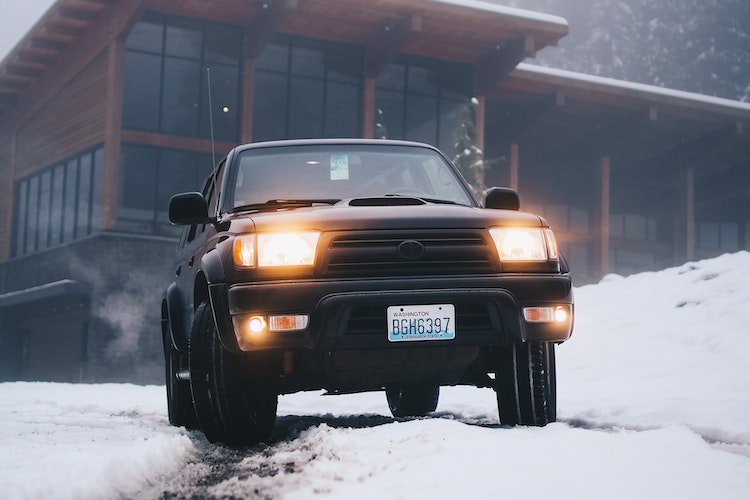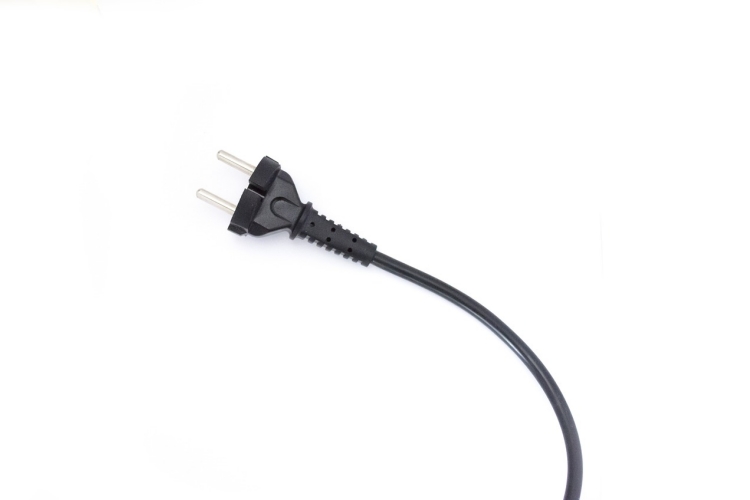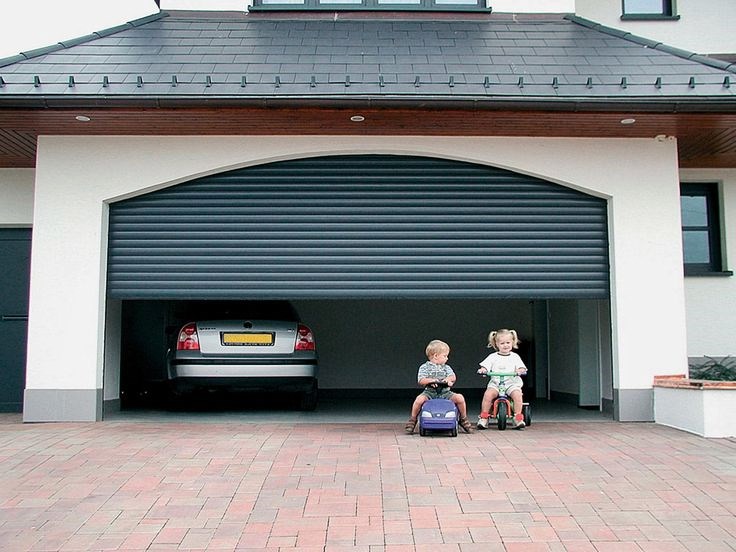Garage Door Stuck? Consider These Common Causes
If you open your garage door and it gets stuck, either partially open or fully open, you must wonder – what’s the point? It can be a frustrating experience, totally negating the instant convenience of using a garage door opener. The situation can grow more stressful, too, if the malfunction happens for no obvious reason.
Probably the only thing that is more frustrating than a garage door that won’t open is one that won’t close. At least with a door that won’t open, all of the items in the garage are secure. But if you’ve opened the door, need to leave, and it won’t close, you’re in a tricky spot. If you leave, will the contents of your garage still be there when you get back? Needless to say, our number one tip would be to call a garage door repair company right away. They’ll likely get it fixed for you quickly so you can get on with your day.
Our experienced garage door team explores the most prevalent reasons for a stuck garage door below in detail.
Possible Reasons for a Stuck Garage Door
Accidental Locking
Don’t laugh and don’t be embarrassed, either, if this happens to you. In some cases, a homeowner will accidentally lock the door, or there could be an issue with the remote code.
There are many different reasons for a stuck garage door.
At C & M, we get a lot of calls about stuck garage doors in Loveland and this is one of the most common causes we come across if the door is stuck open. It’s such a simple, yet easy error to make. And it’s easy to correct too.
Bad Weather

If you experience a garage door sticking during a cold winter, ice may have built up and put pressure on your springs. Even if you clear the ice, the spring may be damaged and could need replacing. If you do find that your problem is a broken spring, contact a garage door professional immediately.
Broken Garage Door Springs
There are different kinds of garage door springs that may break down over time. Extension or torsion springs for a garage door are vitally important when it comes to raising and lowering the door. If one of these springs is damaged it’ll often unbalance the door, make it unsafe and may make it very difficult to fully close the door.
Our Loveland garage door service professionals recieve more calls about torsion springs than any other spring type. Despite their name, torsion springs are subjected to bending rather than torsional stress. Torsion or other garage door springs are difficult and dangerous to replace. We recommend always calling a professional for these kinds of repairs. After a quick visual inspection of your garage door's springs, a garage door technician will be able to tell you whether there’s any damage. If there is, usually the only option will be to replace the springs as soon as possible.
Dead Garage Door Opener Remote Batteries
If you’re hitting the "open” button and nothing is happening it might not be the door’s fault. It could be the batteries in the remote have passed on to that big power source in the sky. This happens often enough that when Loveland homeowners call C & M about a garage door that won’t open our first question is usually "Did you check the batteries in the remote?” If the batteries are sound and the door is not opening then it's something more serious.
Dead Transmitter Battery
This is hand-on-forehead stuff, but have you checked whether the battery on the transmitter is dead? If it is, it won't be able to signal to your garage door opener to close the door. So nothing will happen. It'll appear as though the door is stuck, but in reality, the signal simply isn't being sent. So replace the battery and see if that has the desired effect.
Enabled Disconnect Switch
Can you hear the motor on your garage door opener running, but nothing is happening? If so, it could be that you’ve accidentally enabled the disconnect switch, which allows you to manually override the opener. When this is enabled, the door is not connected to the motor, which is why the door doesn’t close. It’s just a case of reconnecting it.
Faulty Garage Door Opener Motor
Nothing lasts forever, especially mechanical components responsible for opening and closing the average U.S. garage door more than 1,500 times each year. If the motor powering the garage door opener is kaput, then your garage door probably won’t open or close properly. An obvious sign of trouble is if you hear grinding sounds coming from the motor when the door is opening. In this case, the main drive gear might need to be replaced. This is the most common garage door opener component that will fail over time. It takes a fair amount of know-how to replace it, so call a professional for a free inspection.
Garage Door Obstruction
Obstructions can prevent the garage door from opening and closing properly. This can be the result of small stones, leaves, and dirt which has collected in the rails. We’ve also dislodged small balls or toys from garage door rails, so don’t be surprised if this happens to you. It’s a good idea to inspect rollers, tracks, and hinges for trash that might be preventing the garage door from closing.
It’s not uncommon for garage doors to get stuck open during a power outage. That will normally resolve itself once the utility company has restored electricity. But faulty power could also be a circuit breaker issue. Was there a power surge that tripped the circuit breaker for the garage? If you’re hitting the "open" button and not getting any kind of response from the motor, check the power source. The solution may be as simple as flipping a circuit breaker.
We’ve also been called out to a home for a stuck garage door, only to discover the garage door opener was accidentally disconnected from its power source – as in, someone inadvertently pulled out the power cord. Did your power cord for the opener get unplugged by mistake? Don’t laugh, it happens.
Malfunctioning Garage Door Sensors
Modern garage door openers use safety sensors to prevent accidents from happening. When these sensors detect an obstruction, they prevent the garage door from being lowered. If there is no obstruction and the door still isn't coming down, something is awry. First, check whether the sensors are aligned. They normally need to be facing each other. On most models, they will "blink" if this alignment is off. Next, try giving them a wipe with a cloth. Garages are often dusty, and sometimes when the sensors get dirty, they send an incorrect signal to the control board. It’s an inexpensive fix which most homeowners can handle on their own.
Misaligned Tracks and Rollers
Garage doors are installed with rollers on either side which permit it to glide down the track when opening or closing. If the rollers are dislodged from the track the door will get stuck. Another very basic check that you could do before calling for garage door repair is to check the tracks on either side of the door opening to ensure that these rollers aren't blocked. Is there anything preventing the rollers from getting right to the bottom? If so, it would just be a case of removing the obstruction. However, if you notice a roller outside of your garage door's tracks, that's likely the cause of your garage door's issues.
If there is no obvious blockage, check that the tracks look straight. If they’ve been bent anywhere, this could have the same impact and prevent the rollers from running down them freely to the bottom.
Finally, assess whether your your garage door rollers iare n good condition and running properly. If any are damaged or worn, you should ask a garage door repair company to change them. Even if they don’t need changing, greasing them is always a wise idea. Rollers that don’t move freely through lack of lubrication can sometimes give the opener the impression that it’s hit an obstacle, causing it to wind raise the door back up.
Besides the door slipping off the tracks, there can be other problems, too. Tracks and rollers need lubrication for the door to open or close properly, and you can apply grease a few times a year, but make sure it’s specifically a garage door lubricant. The tracks can also be dirty or need straightening.
Power Source Problems

If the door won’t open it’s not always the fault of the door itself. The problem may lie with the opener. Specifically, the power source for the opener.
Unbalanced Garage Door
Everything needs to be in perfect alignment for a garage door to operate properly and be able to close. Over time, your door may become unbalanced. When this happens, the weight distribution shifts, sometimes significantly, and the door may appear lop-sided. When this happens, your garage door opener will have lots of difficulty in working effectively and it may not be possible to close the door because it’s not straight.
If a garage door is unbalanced, the uneven weight distribution can cause the opener to shut down. While rebalancing the door is a job for professionals, diagnosing the problem is fairly easy. Just make sure you and everyone else is clear of the door before performing this test! Disconnect the door from the opener by pulling down on the red disconnect cable. Once the door is disconnected pull it up until it’s about halfway open. If it’s properly balanced it should stay there on its own. If it’s out of balance it will likely slam shut.
You’ll need to call a professional garage door repair company in Loveland for this issue, as to fix it, the door has to be lifted - which is no easy task without the right equipment and professional training.
Essential Safety Tips From Our Garage Door Service Pros
We’d be remiss if we didn’t remind you to always be careful when working around garage doors and mechanical components. Remember, a garage door can weigh hundreds of pounds and cause severe damages or life-threatening injuries if it falls. Torsion springs are especially dangerous, as the wound-up pressure if released uncontrolled could be equally devastating.
Trying to replace a garage door spring yourself is dangerous and you could void your garage door warranty. If your springs are not damaged or broken, try making sure your door and its system parts are free of snow and ice, and see if the problem resolves.
If your garage door is stuck, it’s critical to follow garage door safety precautions. Better yet, call a garage door repair specialist who’s trained for just such an occasion. If you’re trying to fix a garage door that’s stuck open, be sure to turn the door opener off. If possible, safely pull the garage door manually until it’s before trying any repair, but if you get resistance, stop.
Call C & M's Trusted Team for Loveland Garage Door Repairs!

If you’re faced with one of the problems described above, don’t panic. If you can’t fix the issue yourself, our team of experienced garage door repair techs will be glad to assist. C & M Garage Doors has been a Loveland fixture since 1994. Our staff has provided service to hundreds of satisfied customers, and we’re known for services and premium products at affordable prices. Call us today at 970-663-7335 for more information or go online to request a no-cost inspection.
